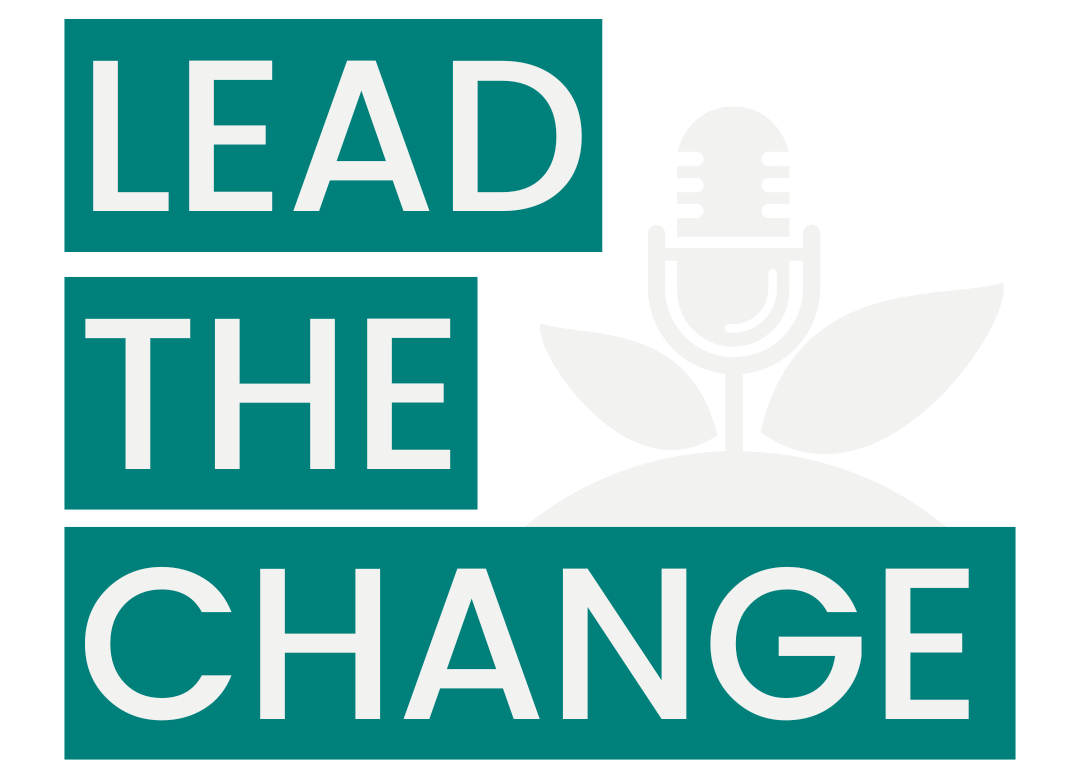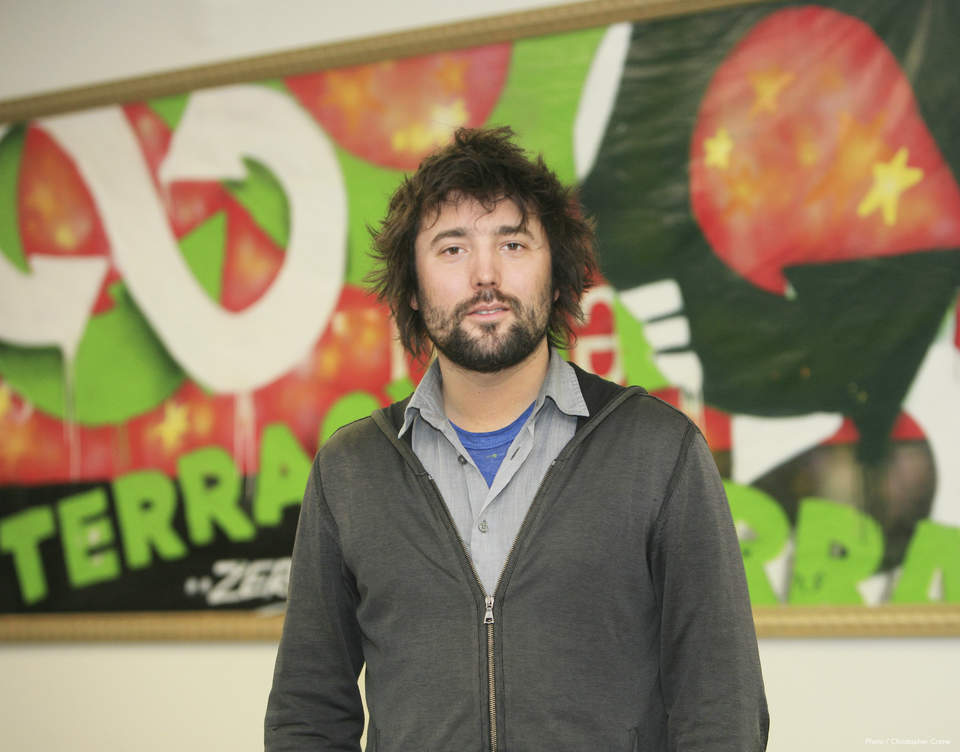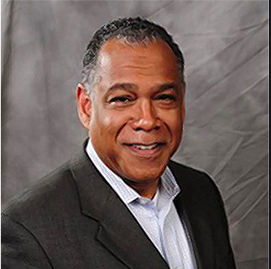Tom Szaky is the CEO and founder of TerraCycle. TerraCycle began as a sustainable fertilizer company, making the product out of worm refuse and putting it in used bottles. It even got a license to use Coca-Cola bottles (which have a patented contour shape). Now, TerraCycle's business model has totally changed, and it's making a bigger impact than ever.
Bard MBA in Sustainability student Alistair Hall spoke with Szaky about eliminating the idea of waste by recycling everything. Szaky also shared an update on new developments at the company since we last spoke with him in the fall of 2016. See an excerpt of their conversation below.
Alistair Hall: A lot has happened with TerraCycle in the last year since we last spoke. First and foremost, you and TerraCycle were recognized by the United Nations with the Momentum for Change Lighthouse Award. Can you tell us a little more about that award and why TerraCycle was recognized?
Tom Szaky: The Momentum for Change Award from the U.N. was given to TerraCycle because of the work we have been doing around bringing solutions to ocean plastic. Today 25% of the world's plastics end up in our oceans and that washes up on beaches, river shores, but also directly floating in the ocean. We collect this material all over the world on every continent and then refine it and turn it into, with the help of Proctor & Gamble things like the Head & Shoulders bottle – which is what the UN recognized but also their dish soap bottle and soon other categories as well.
We are looking at how you get that waste back into the supply chain, especially something so challenging as ocean plastic. And we ask: how do we move away from disposability all altogether and move from disposable products and packaging to durable ones that are borrowed and used more like a circular economy process.
Alistair Hall: How did the partnership with Head & Shoulders come about?
Tom Szaky: It’s interesting. Usually, about 95% of the time we approach partners and share ideas and try to convince them to join. In the Head & Shoulders example, Proctor & Gamble came to us and said they really had this desire to do something meaningful around ocean plastic and wanted a partner to execute and TerraCycle became the partner and it became a huge success and it is still growing which is really exciting to see.
Alistair Hall: It seems that you are really accelerating the company’s growth. We heard that recently, TerraCycle had its first acquisition. Can you tell us a little bit about that deal and how it came about?
Tom Szaky: About a month ago we bought a company called Air Cycle. It is a Chicago-based company and has been around for about thirty years and they do lightbulb recycling. It is important to note that there is a whole category of waste out there called hazardous or universal waste which is everything from batteries to medical sharps to lightbulbs that you cannot legally put in your garbage. That’s the case because something like a fluorescent tube has mercury gas inside and if these things break and release these chemicals—especially in bulk—that is a really big issue.
Air Cycle has been around for a while and has really built up a beautiful and profitable business on collecting and recycling lightbulbs. They also have an equipment division that basically crushes fluorescent tubes and recovers the gas in a very safe way. So we purchased them and so far it has been fantastic.
The real reason for doing this is that—here is a company that’s been stable for many years and I think by them being infused into our culture and seeing waste the way we see it and bringing all of that creativity that we try to bring to waste on a daily basis I think will really help them expand and grow their business way faster than they were currently growing. For us, it is important because right now we are about a $30 million business and we want to at some point go public which we need to be at least $60-70 million to do and we think we can accomplish that through our own growth.
This year (2017) we organically grew 20% and we think a good way to supplement that is by doing more M&A (mergers and acquisitions). We definitely have an appetite. This first acquisition has gone very well and we look forward to doing maybe one or two more in 2018 as a way to get to that next goal.
Alistair Hall: It seems like innovation is at the heart of what you guys do. How do you bring innovation to an industry that is traditionally not innovative? What is at the heart of what TerraCycle is?
Tom Szaky: What we try to do is really think about everything in a slightly different way. What I mean by that is today waste management companies make their profit through disposal and destroying these materials and they look at these materials as a liability. What we try to look at are what are all the possible points of value beyond just material value of the waste stream which is the only way waste management companies today look at waste. So, could there be reputational value could it drive foot traffic, there are whole sets of exciting outcomes or ways to monetize the waste and that philosophy is a lens we bring to this entire question.
The second critical philosophy is asking the question “Why does waste even exist?” and challenging that. Our third business model that's launching in about a year from now we have some amazing founding partners from Proctor & Gamble to Mars to Unilever and other major organizations like Nestle who are working with us on challenging that very question and, in fact, the outcome will be how do we move from disposable packages that are owned by the consumer like when you go buy your shampoo bottle to ultra-durable amazing packaging forms that are never owned by the consumer and instead always owned by the manufacturer and just loaned by the consumer.
Alistair Hall: We have been reading with interest about TerraCycle’s equity crowd-funding effort under the Jobs Act which is a new space for companies to raise money. Can you tell us a little bit about what is happening there?
Tom Szaky: Under the Jobs Act passed under President Obama, the goal was to create a new way of raising capital that would allow anyone to take part. To take a step back, current startups raise capital under something called regulation D financing and that is a great way to raise capital but it limits you to only accredited investors (someone with over a million dollars in net worth). This eliminates the ability for people that may not be wealthy or who want to invest smaller amounts to invest.
Under the Jobs Act you can effectively crowd source for equity and there is a big distinction. Classic crowd-sourcing is typically like doing pre-orders like committing to buy a knife from a startup that is making knives and when they get to a million dollars in pre-commitments they get paid that money and then they can go build their knife. Here, it is crowdfunding for actual equity. This is really exciting for us because it allows anyone that is interested in TerraCycle and has been watching us or intrigued in our business model or listening to this discussion to invest.
We just launched this and we already have over 650 investors that have joined in the first two weeks and we feel that we will be able to raise the $25 million we are seeking probably within 90 days based on the rate at which capital is coming in which by the way would make it the largest non-real estate Reg A in history, which we are quite excited about. If anyone is interested in potentially investing in TerraCycle or learning more about what Regulation A financing looks like please go to OwnTerracycle.com and there you can read all about it.


.jpg)
%20h%20copy-1.jpg)

